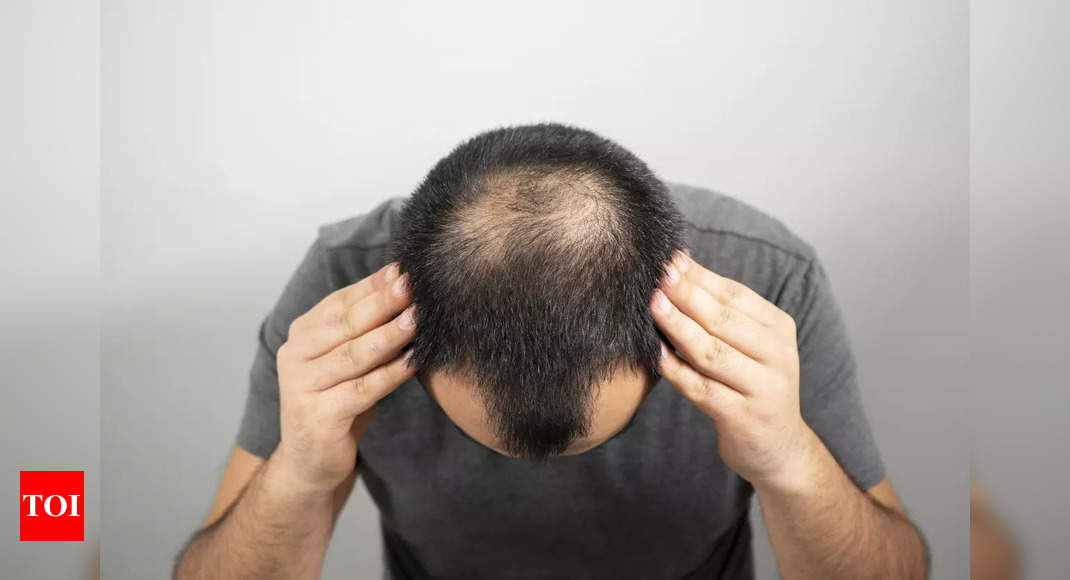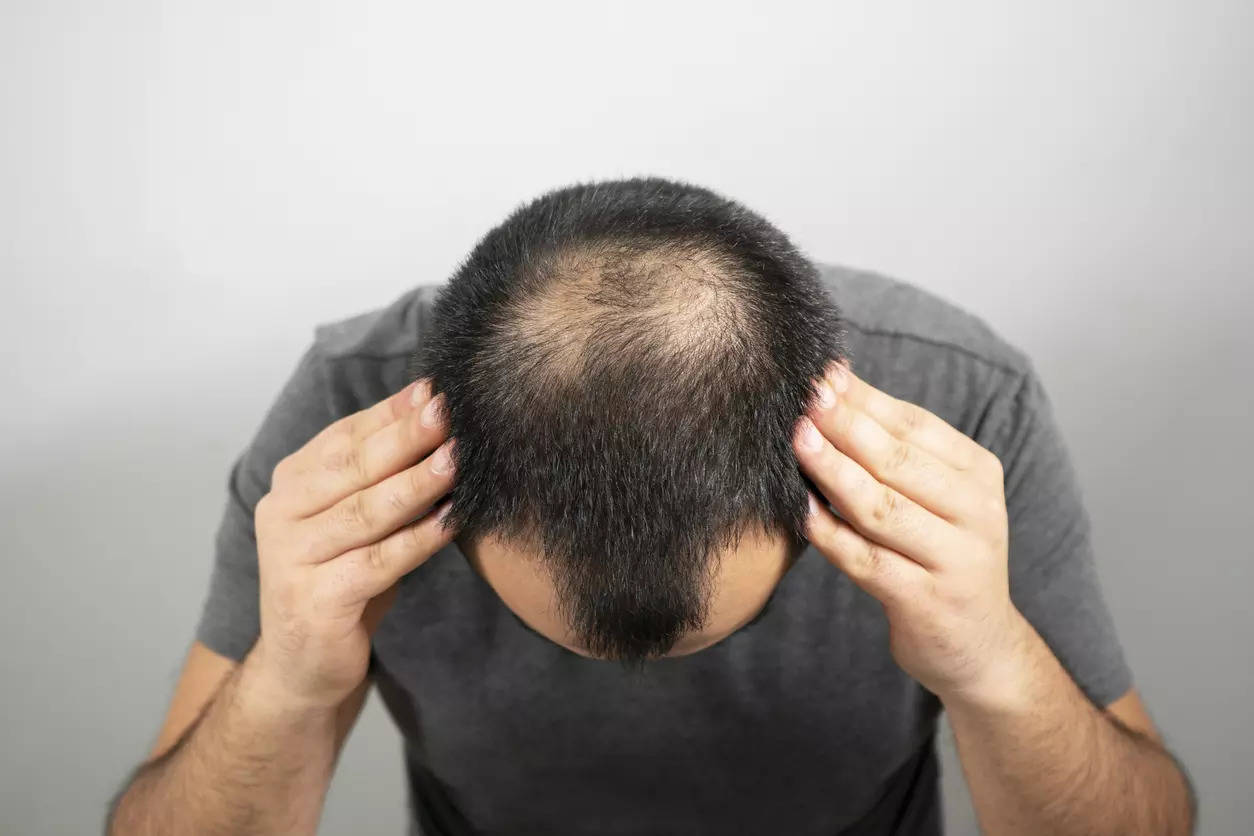Which are the 10 best hair oils for people who are going bald? – Times of India
Genetics: Hair loss patterns and the rate of hair shedding can be influenced by genetic factors. Some people may be more prone to hair loss or shedding due to inherited factors.
Age: As people age, their hair may naturally become thinner and more prone to shedding.
Hormonal changes: Changes in hormones can affect hair growth and shedding patterns. For example, women may experience more hair shedding during pregnancy or menopause due to changes in estrogen levels.
Stress: Stress can contribute to hair shedding by disrupting the hair growth cycle and causing hairs to prematurely enter the shedding phase.
Nutrition: A poor diet or nutritional deficiencies can impact hair health and contribute to shedding.
Hair care practices: Certain hair care practices, such as frequent use of heat styling tools or harsh chemicals, can damage hair and contribute to shedding.
It’s important to note that some hair shedding is normal and not necessarily a cause for concern. However, if you are experiencing excessive hair shedding or hair loss, it’s recommended that you consult a medical professional for advice on appropriate treatment options.
While there is limited scientific evidence to support the effectiveness of natural oils in preventing or treating hair loss, some oils are believed to have properties that may promote healthy hair growth and reduce hair fall. Here’s a brief overview of what these 10 oils may do:
Coconut oil: Contains fatty acids that can penetrate hair strands, moisturizing and strengthening the hair.
Argan oil: Rich in antioxidants and vitamin E, it can help nourish and protect hair from damage.
Castor oil: Contains ricinoleic acid, which has anti-inflammatory properties and can help improve blood flow to the scalp, promoting healthy hair growth.
Olive oil: Contains antioxidants and vitamins A and E, which can help protect hair from damage and promote healthy hair growth.
Jojoba oil: Similar in composition to the natural oils produced by the scalp, it can help balance scalp oil production and promote healthy hair growth.
Almond oil: Rich in vitamins E and D, it can help nourish hair and improve hair strength and elasticity.
Rosemary oil: Contains antioxidants and anti-inflammatory properties, which can help improve scalp health and promote healthy hair growth.
Lavender oil: Has anti-inflammatory and antimicrobial properties, which can help soothe scalp irritation and reduce hair loss caused by stress.
Peppermint oil: Can help improve blood flow to the scalp, promoting healthy hair growth.
Tea tree oil: Has antimicrobial properties that can help reduce scalp inflammation and prevent dandruff, which can contribute to hair loss.
Remember that while these natural oils may have potential benefits for hair health, they are not a substitute for medical advice or treatment for hair loss. If you are experiencing hair loss, it’s recommended that you consult a medical professional for advice on appropriate treatment options.
For all the latest lifestyle News Click Here


